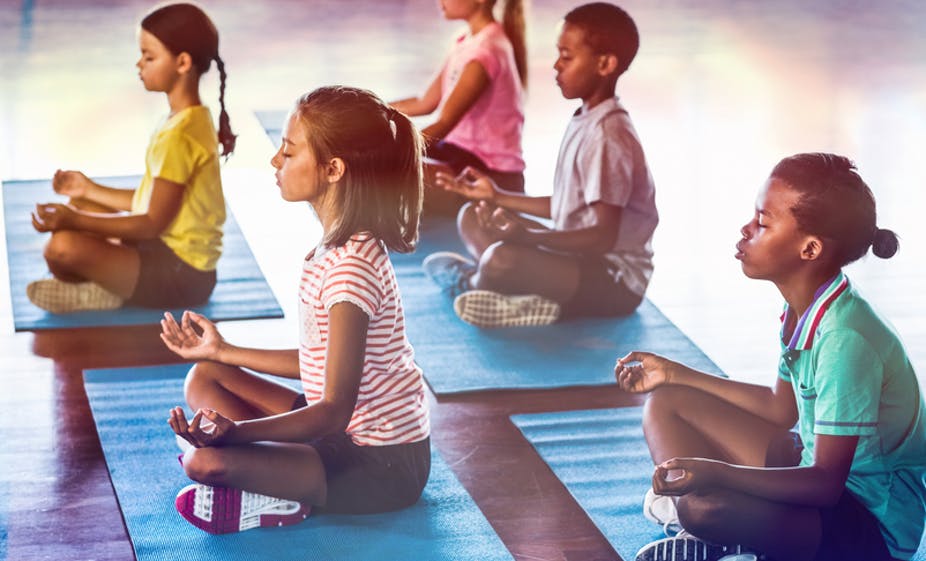School: should yoga be included in the curriculum?
Yoga has conquered the world. The crane, crow, and half-grasshopper poses are all images of an activity that has become a global phenomenon in just a few decades. A sport, a spiritual awakening, a way of life, yoga has become a "global activity." How can one of the world's most widespread sports be transposed into the school environment? How could yoga help transform education?
Sylvain Wagnon, University of Montpellier and Sihame Chkair, University of Montpellier

Global soft power
Marie Kock showed how the global spread of this ancient activity had transformed it into a "New Age" practice, a relaxing activity for people seeking personal development and happiness. A victim of fashion and reinvented by the West, yoga has become a business.
It is also a political weapon. Narendra Modi's Indian government has turned it into a tool for nationalist political glorification and seeks to maintain its global leadership in yoga. Celebrated with an international day on June 21, yoga has thus transcended its status as a simple form of physical expression.
The activity is also recognized as intangible cultural heritage and is practiced worldwide by nearly three million French people and hundreds of millions of people around the world. As a sporting activity, it has national, regional, and local structures and a multitude of associations that promote its various practices.
Stress management
During lockdown, the word "yoga" was one of the most searched terms on search engines. Sales of yoga mats skyrocketed during the first month of lockdown in France! Similarly, during this unprecedented health crisis, blog articles and videos introducing yoga, both live and recorded, saw exponential growth.
A sport and relaxation practice, yoga aims to awaken spirituality through knowledge of the body and breathing. Studies show the benefits of combining yoga with meditation. Regular practice improves attention, concentration, stress management, and emotional control by reducing levels of cortisol, a stress hormone. The positive effects of yoga on cognitive learning are beginning to be recognized, as are its contributions to the well-being of students and teachers.
School transfers
Yoga is already present in French schools, in kindergarten, elementary school, and high school. This movement seems to be growing, and we are currently conducting a study to quantify this boom, which is still little known in France. Many teachers are showing a growing interest in introducing yoga into education.
The first initiatives to introduce yoga into schools were led by teachers who practiced yoga themselves. For them, yoga was defined as a set of physical and breathing exercises that did not exclude a spiritual dimension. Currently, more and more teachers are emphasizing the benefits of yoga for coordinated work on breathing and body awareness. The spiritual dimension is becoming less and less present, giving way to physical and mental well-being and the creation of a high-quality school environment for learning through active relaxation.
Approved associations, such as the RYE association, support the many initiatives within the French Ministry of Education, which in turn offers yoga training courses and workshops.
Yoga in schools (Mille et une vies, 2016).
Schools are becoming less and less resistant to incorporating this form of physical expression. Teachers who practice it with their classes emphasize the positive response from parents and children.
The question that remains is that of the place of yoga in schools. Such alternative activities highlight the need for an education that takes a holistic view of children and adolescents, with cognitive learning as well as physical and emotional learning. Will yoga in schools remain the preserve of activist teachers, will it be integrated into existing subjects, or will it become a lever for developing cross-curricular activities and creating a truly comprehensive education?![]()
Sylvain Wagnon, Professor of Education Sciences, Faculty of Education, University of Montpellier and Sihame Chkair, Doctor of Health Economics and PhD student in Education Sciences, University of Montpellier
This article is republished from The Conversation under a Creative Commons license. Readthe original article.